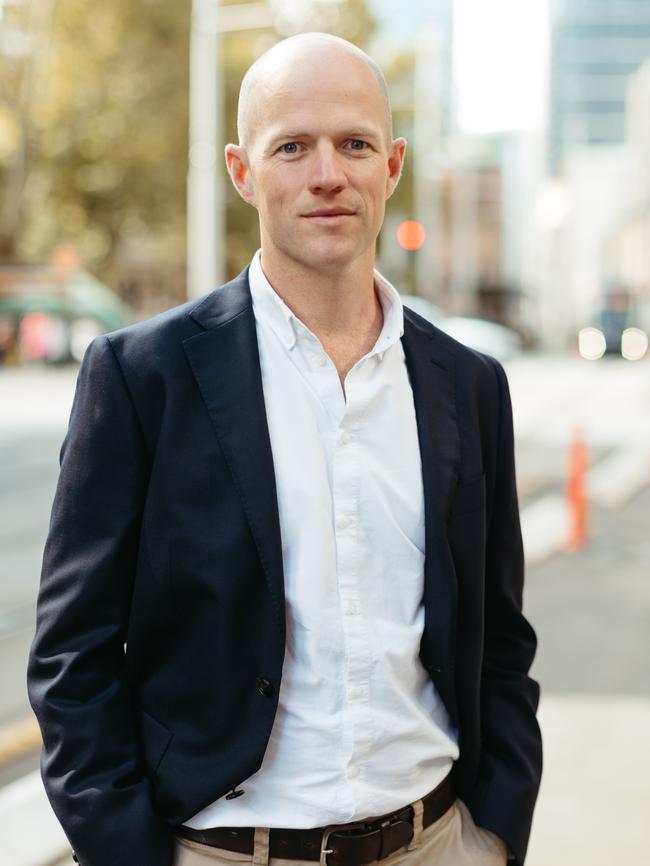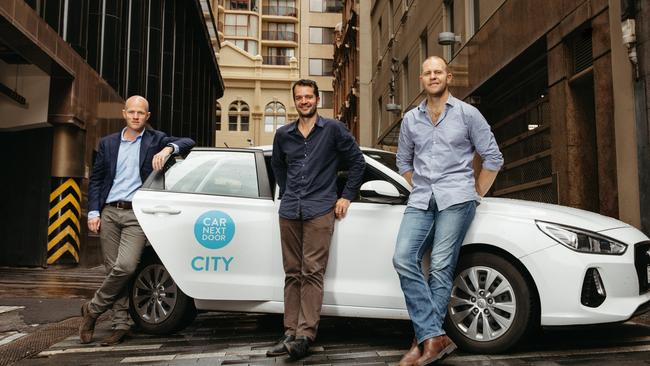Uber pushing to expand rideshare and food delivery services into SA regions
Uber says SA’s “complex” regulations must change as it expands its rideshare and food delivery services into two major SA regional cities.
Business
Don't miss out on the headlines from Business. Followed categories will be added to My News.
Uber is making a push to expand its rideshare and food delivery services into the state’s regional areas but says changes to the state’s “complex” regulatory environment are needed in order for it to cater to growing demand outside of Adelaide.
While Uber Eats will launch in Whyalla and Mount Gambier in the coming weeks, regulations governing rideshare services are much more restrictive.
Under rules introduced in 2017, rideshare companies are allowed beyond the metropolitan area but drivers must buy an additional licence to allow them to accept ride requests from the regions.
The boundary that applies to metropolitan rideshare and taxi operators was expanded in 2021 to include a large area of the Adelaide Hills including Lobethal, Oakbank, Hahndorf and Mount Barker, and extends from Gawler in the north to McLaren Vale in the south.
However during a visit to Adelaide last week, the company’s general manager for Australia and New Zealand Dom Taylor said the restrictions still excluded high-demand areas like the Barossa Valley, and put South Australia out of step with the rest of the country.

“South Australia is the only state in Australia where Uber is not able to operate in the regions and it’s because of this metropolitan border that precludes rideshare being outside of the broad city area,” he said.
“I think there’s a clear use case where in the Barossa for example, it’s not a 24/7 product, but people are drinking and we don’t want drink driving to occur.
“And so what we’ve seen in other regional markets is a great Friday, Saturday night product, or when events happen, whether it be music or opera in the vineyards, you’ll see Adelaide drivers go down for the weekend or for the day just to do the toing and froing.”
Mr Taylor said there were several ways to ease the restrictions as part of the current review of the Passenger Transport Act, which regulates the state’s point-to-point transport industry.
They include expanding the restricted area, allowing drivers to hold licences for both metropolitan and regional areas or removing the boundary altogether.
“The main message that I’m here to say is that we want to invest in South Australia,” he said. “We’ve announced our Uber Eats business will launch in Mount Gambier and Whyalla but we can’t do that for rideshare because it’s more regulated.
“That’s the other area – is the cost to become a driver in South Australia, and the complexity, is harder and higher than other states.
“And so what we really want to make sure is that the easier it is the more you get the pop up of a driver that might be out of work, so they’ve got four weeks where they’re able to work. “Or with cost of living pressures, what we’re seeing across many other states, is people are struggling to pay their mortgage and they’re looking to do Uber on Friday, Saturday nights as a secondary income.”
A state government spokesman said changes to the current rules, which allowed rideshare providers to operate outside of the metropolitan area, would be considered as part of the wider transport review.
“Rideshare services are currently able to request accreditation to operate outside the metropolitan Adelaide boundary. Uber is yet to seek this accreditation,” he said.
“The operation of the metropolitan boundary will be looked at as part of an ongoing detailed review of the Passenger Transport Act. However, any proposed change needs to be weighed up in terms of broader impacts and implications for public transport and the taxi industry.”

Uber says that since its launch in South Australia in 2014, it has facilitated around 40 million rideshare trips by close to 27,000 drivers.
However the company is facing a major shake-up to its employment practices.
The federal government is set to table a suite of industrial relations reforms in parliament on Monday, including setting minimum standards of pay and conditions for ‘gig workers’.
Mr Taylor said it was important for the new laws to support flexibility.
“It’s a once-in-a-generation moment to modernise the Australian industrial relations system for a modern type of work,” he said.
“We continue to be optimistic on the ability for the government to get it right. And when I say that it’s don’t lose the flexibility that drivers tell us they love.
“They don’t want set shifts, they want to be able to choose what jobs they take, they don’t want to wear uniforms, if they go away for five months they don’t want to have to tell us. So don’t lose any of that but then how do we overlay greater protections and benefits on top of that? And that’s the balance that we’re really excited about.”
While continuing to add new features to its rideshare platform, Uber is also looking to expand its carshare business following last year’s acquisition of Australian peer-to-peer car rental start-up Car Next Door.
Rebranded to Uber Carshare, the platform is currently available across Australia, and will be rolled out in overseas markets for the first time later this year when it launches in Toronto and Boston.




